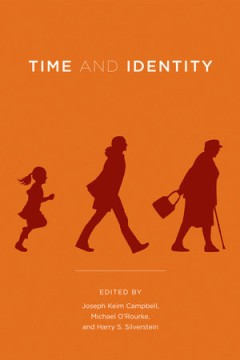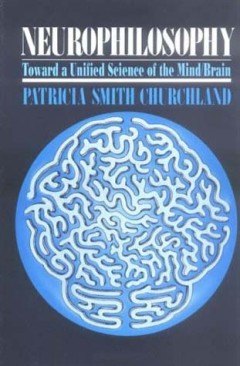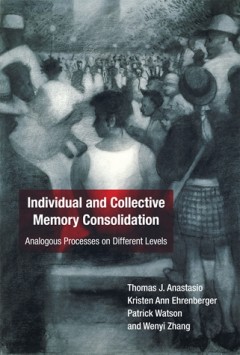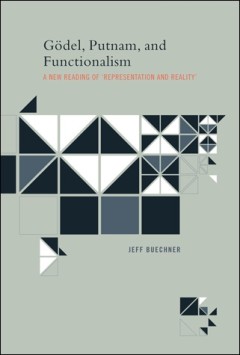Filter by

Actions of Their Own to Learn
What does it mean to take actions of one’s own to learn? How do human beings create meaning for themselves and with others? How can learners’ active efforts to build knowledge be encouraged and supported? In this edited compilation, scholars from a diverse range of academic and professional backgrounds address these questions, grounded in the conviction that the ability to take effective ac…
- Edition
- -
- ISBN/ISSN
- 9789463511988
- Collation
- oer.unej.ac.id
- Series Title
- -
- Call Number
- -

Academics Writing
Academics Writing recounts how academic writing is changing in the contemporary university, transforming what it means to be an academic and how, as a society, we produce academic knowledge. Writing practices are changing as the academic profession itself is reconfigured through new forms of governance and accountability, increasing use of digital resources, and the internationalisation of high…
- Edition
- -
- ISBN/ISSN
- 9780429197994
- Collation
- oer.unej.ac.id
- Series Title
- -
- Call Number
- Literature: history

Translating feminism in China : gender, sexuality and censorship
- Edition
- -
- ISBN/ISSN
- 9781315753096
- Collation
- -
- Series Title
- -
- Call Number
- -
- Edition
- -
- ISBN/ISSN
- 9781315753096
- Collation
- -
- Series Title
- -
- Call Number
- -

The Routledge Companion to Butoh Performance
- Edition
- -
- ISBN/ISSN
- 9781315536132
- Collation
- -
- Series Title
- -
- Call Number
- -
- Edition
- -
- ISBN/ISSN
- 9781315536132
- Collation
- -
- Series Title
- -
- Call Number
- -

Identity and the natural environment :the psychological significance of nature
The often impassioned nature of environmental conflicts can be attributed to the fact that they are bound up with our sense of personal and social identity. Environmental identity--how we orient ourselves to the natural world--leads us to personalize abstract global issues and take action (or not) according to our sense of who we are. We may know about the greenhouse effect--but can we give up …
- Edition
- -
- ISBN/ISSN
- 9780262270465
- Collation
- 1 online resource (vi, 353 pages) : illustrations
- Series Title
- -
- Call Number
- -

Natural minds
"A Bradford book."In Natural Minds Thomas Polger advocates, and defends, the philosophical theory that mind equals brain--that sensations are brain processes--and in doing so brings the mind-brain identity theory back into the philosophical debate about consciousness. The version of identity theory that Polger advocates holds that conscious processes, events, states, or properties are type- ide…
- Edition
- -
- ISBN/ISSN
- 9780262281737
- Collation
- 1 online resource (xxvii, 294 pages) :illustrations
- Series Title
- -
- Call Number
- -

Time and identity
The concepts of time and identity seem at once unproblematic and frustratingly difficult. Time is an intricate part of our experience—it would seem that the passage of time is a prerequisite for having any experience at all—and yet recalcitrant questions about time remain. Is time real? Does time flow? Do past and future moments exist? Philosophers face similarly stubborn questions about id…
- Edition
- -
- ISBN/ISSN
- 9780262265799
- Collation
- 1 online resource (vi, 330 pages).
- Series Title
- -
- Call Number
- -

Neurophilosophy :toward a unified science of the mind-brain.
Five chapters in the book's first part, "Some Elementary Neuroscience," sketch the history of the science of nervous systems and provide a general introduction to neurophysiology, neuroanatomy, and neuropsychology. In the second part, "Recent Developments in the Philosophy of Science," chapters place the mind-body problem within the wider context of the philosophy of science. Drawing on recent …
- Edition
- -
- ISBN/ISSN
- 9780262315944
- Collation
- 1 online resource.
- Series Title
- -
- Call Number
- -

Individual and collective memory consolidation :analogous processes on differ…
An argument that individuals and collectives form memories by analogous processes and a case study of collective retrograde amnesia.We form individual memories by a process known as consolidation: the conversion of immediate and fleeting bits of information into a stable and accessible representation of facts and events. These memories provide a version of the past that helps us navigate the pr…
- Edition
- -
- ISBN/ISSN
- 9780262301664
- Collation
- 1 online resource (ix, 333 pages) :illustrations
- Series Title
- -
- Call Number
- -

G?odel, Putnam, and functionalism :a new reading of Representation and reality
"A Bradford book."The first systematic examination of Hilary Putnam's arguments against computational functionalism challenges each of Putnam's main arguments.OCLC-licensed vendor bibliographic record.
- Edition
- -
- ISBN/ISSN
- 9780262269513
- Collation
- 1 online resource (x, 344 pages)
- Series Title
- -
- Call Number
- -
 Computer Science, Information & General Works
Computer Science, Information & General Works  Philosophy & Psychology
Philosophy & Psychology  Religion
Religion  Social Sciences
Social Sciences  Language
Language  Pure Science
Pure Science  Applied Sciences
Applied Sciences  Art & Recreation
Art & Recreation  Literature
Literature  History & Geography
History & Geography